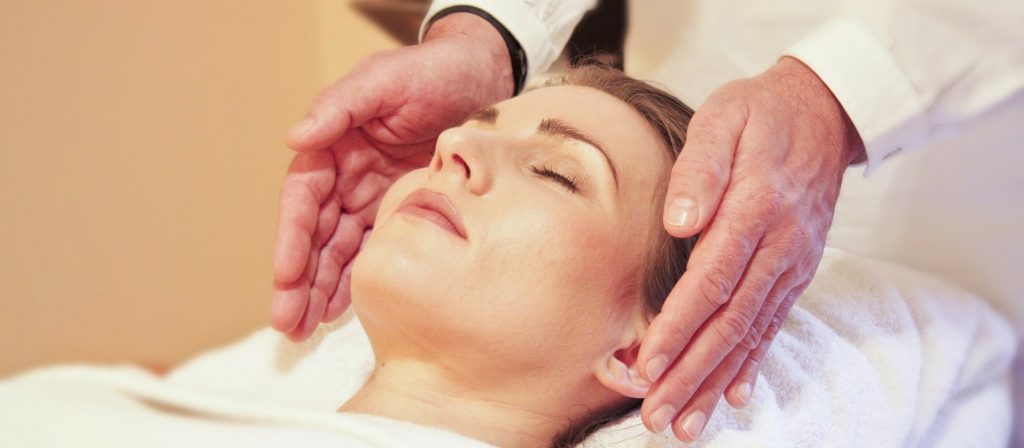
The Differences and Similarities Between Quantum Touch and Reiki
You may have heard about quantum touch and reiki if you’ve done any research into

You may have heard about quantum touch and reiki if you’ve done any research into energy healing. These two healing modalities employ the hands to channel chi, prana, or ki, the universal life force. Both treatments claim to improve physical health, mental clarity, and spiritual harmony in addition to alleviating pain, tension, and inflammation. The question is, how is quantum touch like or unlike reiki? And how can you know which one will serve you best? This article will examine the similarities and differences between reiki and quantum touch, including their origins, guiding principles, practises, outcomes, and clinical utility.
History of Quantum Touch and Reiki
Based on the teachings of Bob Rasmusson, a natural healer who possessed the ability to heal with his hands, Richard Gordon developed quantum touch in the 1970s. Gordon perfected and standardised Rasmusson’s techniques, developing an approach that is both easy to learn and highly effective. In 1999, he released his first book on the subject and established the Quantum-Touch Organisation to educate and train professionals around the world.
Mikao Usui, a Japanese Buddhist monk who was looking to re-discover the healing skill of laying on of hands, founded Reiki in the late 1800s. After meditating for 21 days on Mount Kurama, he had a spiritual awakening that led to the creation of the reiki healing method. Before his death in 1926, he trained a large number of students in reiki and gave the baton to his successor, Chujiro Hayashi. Hawayo Takata, a Hawaiian woman who studied reiki under Hayashi in Japan during the 1930s, is credited with bringing the practise to the West. Before her death in 1980, she trained 22 reiki masters and founded the Reiki Alliance to ensure that Usui’s teachings would be passed down unchanged.
Principles of Quantum Touch and Reiki

When two vibrating systems are physically close to one another, their vibrations will begin to entrain with one another, a phenomenon known as quantum touch. Through deep breathing, bodily awareness, and focused intention, both the healer and the patient experience a boost in vibrational frequency during quantum touch. The practitioner then places their hands on or near the affected location, allowing the higher vibration to entrain the lower one and alleviate the pain or restore balance. This triggers a reparative process that can ease inflammation, realign bones, normalise organ function, and provide emotional harmony.
Any anyone who has been properly attuned to the universal life force energy that permeates all living things can practise Reiki. Reiki taps into this vitality and channels it through the use of symbols, initiations, and one’s inner knowing. The energy is channelled through the healer’s hands to the area of the patient’s body that needs it most. A healing response is triggered, which has the potential to remove obstacles to recovery, revitalise health, and revive vitality.
Techniques of Quantum Touch and Reiki

By placing hands on or near the affected location, practitioners of quantum touch hope to entrain the lower frequency and alleviate the pain or imbalance. Breathing patterns, body sweeps, sandwiching, spinning bones, balancing chakras, and other procedures are among those used by the healer. The patient also plays an active role by taking slow, deep breaths, concentrating on how their body feels, and visualising themselves completely healed.
In Reiki, the practitioner places his or her hands on or near the patient and allows the energy to flow through them. The healer either adheres to a predetermined set of hand positions that encompass the entire body (head, torso, back, legs, feet, etc.) or follows their intuition. The receiver takes it easy and accepts the energy without demanding anything in return.
Benefits of Quantum Touch and Reiki
Inflammation is reduced, bones are realigned, organs are in harmony, and emotions are calmed by quantum touch. It can help people with persistent pain from conditions like arthritis or fibromyalgia, improve their posture and range of motion, and sharpen their minds.
Reiki has the ability to improve health and well-being by reestablishing harmony, removing obstacles, and stimulating the body’s natural healing processes. It can also strengthen immunity and vitality, promote spiritual development and awareness, and alleviate stress, worry, and despair.
Applications of Quantum Touch and Reiki
Injuries, infections, chronic pain, etc., are only some of the many conditions that can benefit from quantum touch. It’s also helpful for preventing illness and keeping oneself in good shape. Humans, animals, plants, and inanimate objects can all benefit from a quantum touch. It can happen face-to-face or via video chat.
Stress reduction, relaxation, strengthened immunity, and other general health benefits are all possible with the practise of Reiki. You can utilise it to deal with specific problems like disease, addiction, or emotional trauma. Anyone, anything, or anything at all can benefit from receiving Reiki treatment. It can happen face-to-face or via video chat.
Conclusion
Both quantum touch and reiki are effective energy healing modalities, and they compliment one another. However, there are certain distinctions between the two that could make one a better fit for your requirements.
The easiest approach to figure out which one is right for you is to give them both a shot and see what results you get. It’s possible that you’ll like both of them, or that you’ll like one over the other. It’s possible you’ll find that combining them yields synergistic therapeutic benefits. It’s up to you to decide. We hope this page has provided you with useful information about reiki and quantum touch, allowing you to make an educated choice.
